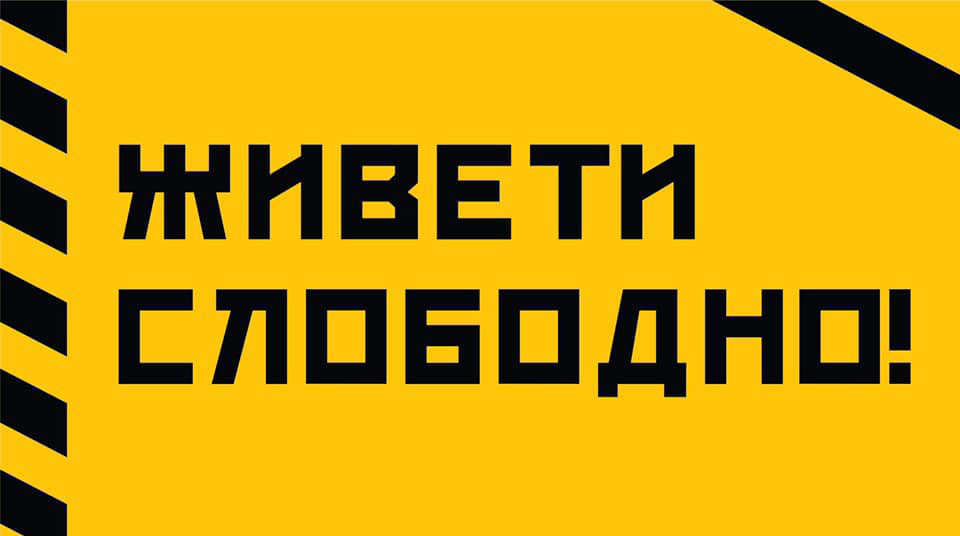
The new normal, the phrase coined during the pandemic, has already been forgotten. Back when we talked about Covid on a daily basis, it meant establishing a new way of life and coming to terms with a future in isolation, far from other people. In Serbia in 2023, the new normal takes on new contours. It signifies settling down and coming to terms with a life where physical assault or threat is a daily and unremarkable occurrence.
This is the context to keep in mind when we hear the news that a Local Front activist from Kraljevo, Predrag Vostinic, was injured when he was hit by a car while riding a bicycle. If we add to that the fact (stated in the first media reports) that the attacker, i.e. the driver of the car, after hitting Vostinic, made a full turn at the roundabout and came back to try to hit him again, any hope that this was an ordinary traffic accident disappears. It’s highly likely that the Kraljevo activist earned such treatment by thinking and behaving freely, as if he lived in a country where such a thing is allowed. And we all know it’s not.
The media reported that Vostinic was admitted to the Kraljevo hospital, that the police and the prosecutor acted quickly, and that the perpetrator has been arrested. Bearing in mind that this is a prosecutor elected under the baton of Zagorka Dolovac and that this is the same police who refuse to cooperate at the slightest notion of political connotation, we have reason to believe that their presence at the scene of the accident, as well as the apprehension of the perpetrator, were a matter of décor and appearance, rather than actual consideration for their duty.
After all, what can we expect from the police, when two of their detectives were recently dismissed just because they were inconvenient witnesses in the Jovanjica case. Kraljevo policemen are not self-destructive fools – they have seen what happens to those who try to actually do their jobs.
In the past four months, two mass murders have happened in Serbia – and still, nothing. The investigation into the circumstances under which the murders took place was stopped under suspicious circumstances. As we already know, the government readily welcomed requests to stop the work of the Assembly’s Inquiry Committee into the circumstances under which the murders took place, as if it had devised them itself.
In the same period, due to the irresponsibility of the local authorities, two people from the same family were electrocuted to death at the same location in Backa Palanka. The mayor of Backa Palanka dotingly visited the family of the victims, who (following a similar model from Ribnikar and Mladenovac) asked the protesting citizens not to take advantage of their family tragedy. And again nothing happened – no results, no investigation, no one was held accountable.
For the second time, the aforementioned police detectives reported to the competent authorities that they are aware of plots to murder them. Still nothing happened – except that the policemen are now guarded by the Special Anti-Terrorist Unit (SAJ), because it couldn’t be done by a regular MUP unit. The regular unit, after all, would be under direct command of the very minister who dismissed the detectives in the first place, and who has every reason to either threaten them or at least turn a blind eye to death threats coming from other instances.
All these events make the attack on Predrag Vostinic look like just one part in a series of events that flourish in a culture of violence and a system of impunity. Such events have become common – they happen at least once a month, and often even on a weekly basis (especially if we include so-called revenge arrests in the statistics).
Apart from the frequency of violent episodes, another phenomenon it is impossible to ignore is the absence of surprise in response to such episodes, even among those strongly inclined to oppose them. That opposition is still there, but nobody is surprised any more. Every new warning, threat, injury and even death ceases to be news. At least, for more than a few days. This violent order has become our new normal.
Ever since it became evident that the government was determined not to fulfill any of the demands of the “Serbia Against Violence” protests, the public has taken to questioning if continuing the street protests makes any sense anymore. It does to me, at least in one way – we need to look at ourselves at least once a week and remind ourselves that our new normal is not really normal. Just as the global pandemic ended, the reign of violence in Serbia will end, too. Just as we took off our masks relatively quickly and started hugging each other as if the virus had never existed, one day we will start to think and act freely again, as if we had not lived through the Vucic era. In that expected reality, political dissidents getting “mowed down” by cars would not be everyday and fleeting news, but a serious symptom and cause for deep contemplation from everyone in the society.
Translated by Marijana Simic
Peščanik.net, 13.09.2023.
- Biografija
- Latest Posts
Latest posts by Sofija Mandić (see all)
- Dogovor koga nema - 19/04/2024
- Dačić’s referendum - 18/04/2024
- Dačićev referendum - 09/04/2024


